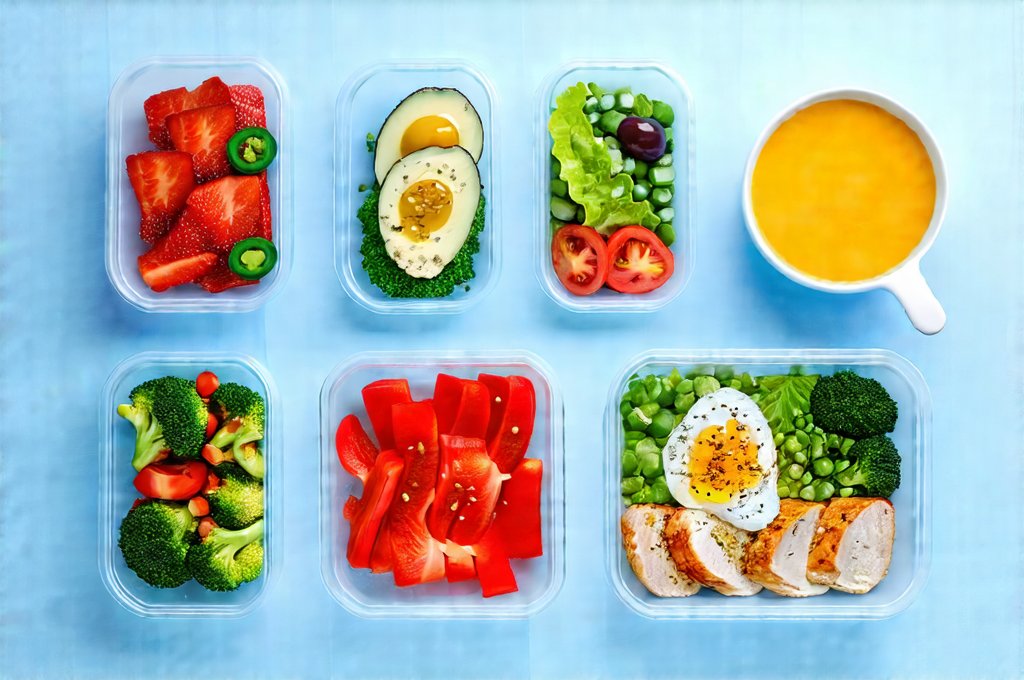As women move past 40, their bodies undergo natural changes that impact metabolism, hormonal balance, and nutritional needs. What worked in your twenties and thirties simply won’t deliver the same results – or even maintain the same level of wellbeing – as you age. A 1500-calorie meal plan isn’t about restrictive dieting; it’s about fueling your body with nutrient-dense foods to support energy levels, manage weight, and promote overall health during this significant life stage. It’s a proactive step toward feeling vibrant, strong, and confident as you navigate midlife and beyond. This means shifting focus from calorie restriction alone to prioritizing quality food choices that nourish the body and address its evolving needs.
Many women over 40 find they experience decreased metabolic rates, often due to loss of muscle mass and hormonal shifts associated with perimenopause and menopause. This can make it easier to gain weight and harder to lose it. A well-designed 1500-calorie plan isn’t about deprivation; it’s about strategic eating. It’s a chance to re-evaluate your relationship with food, learn mindful eating habits, and embrace a sustainable lifestyle that supports long-term health. This plan will focus on whole foods, lean proteins, healthy fats, and complex carbohydrates – the building blocks of sustained energy and optimal wellbeing.
Understanding Nutritional Needs Over 40
The nutritional landscape shifts significantly after 40. While calorie needs vary based on activity level, a general guideline for moderately active women is around 1600-2000 calories per day. However, as metabolism slows down, 1500 calories can be effective for weight management or maintenance when combined with regular exercise. But it’s not just about the numbers; it’s about what those calories consist of. Increased protein intake becomes crucial to combat muscle loss and maintain strength. Calcium and Vitamin D are essential for bone health as estrogen levels decline, potentially increasing osteoporosis risk. Fiber is vital for digestive health and feeling full, which helps manage appetite.
Beyond these key nutrients, paying attention to micronutrients like B vitamins (for energy production) and antioxidants (to combat oxidative stress) becomes even more important. Many women over 40 report experiencing fatigue or changes in sleep patterns, making adequate nutrient intake crucial for maintaining vitality. Hydration is also often overlooked but remains paramount; water supports all bodily functions and can help manage weight. Don’t underestimate the power of mindful eating – paying attention to hunger cues and savoring your meals contributes significantly to overall wellbeing.
A 1500-calorie plan should prioritize whole, unprocessed foods. Think lean proteins like chicken breast, fish, beans, and lentils; complex carbohydrates such as quinoa, sweet potatoes, and brown rice; healthy fats from avocados, nuts, seeds, and olive oil; and a rainbow of fruits and vegetables for essential vitamins and minerals. Reducing processed sugars, unhealthy fats, and excessive sodium is also critical for long-term health.
Building a Sample 1500-Calorie Meal Plan
Creating a personalized meal plan is best done with the assistance of a registered dietitian or nutritionist, but here’s a sample to illustrate how it can work:
- Breakfast (approximately 300 calories): Oatmeal made with ½ cup rolled oats, 1 cup unsweetened almond milk, ¼ cup berries, and a tablespoon of nuts.
- Lunch (approximately 400 calories): Large salad with 4oz grilled chicken or fish, mixed greens, vegetables, and a light vinaigrette dressing. Include ½ cup quinoa for added protein and fiber.
- Dinner (approximately 500 calories): 4oz baked salmon, ½ cup roasted sweet potatoes, and 1 cup steamed broccoli.
- Snacks (2 x approximately 150 calories each): Greek yogurt with a handful of berries or an apple with two tablespoons of almond butter.
This is just a starting point; feel free to swap out foods based on your preferences and dietary needs. The key is to ensure you’re getting a balanced intake of macronutrients (protein, carbohydrates, and fats) and micronutrients (vitamins and minerals).
Meal Prepping for Success
Meal prepping can be a game-changer when following any calorie plan, but it’s particularly beneficial for busy women over 40. It eliminates impulsive food choices and ensures you have healthy options readily available. Here’s a simple approach:
- Plan your meals: Sit down once a week and plan out your breakfasts, lunches, dinners, and snacks.
- Grocery shop accordingly: Create a shopping list based on your meal plan and stick to it. Avoid impulse purchases.
- Prepare ingredients in advance: Wash and chop vegetables, portion out protein sources, and cook grains like quinoa or brown rice.
- Store meals properly: Use airtight containers to keep food fresh and organized.
Batch cooking – preparing larger quantities of food at once – can save significant time and effort. Roasted vegetables, cooked chicken breasts, and lentil soup are all excellent options for batch prepping. Consistency is key; the more prepared you are, the easier it will be to stay on track with your meal plan.
Staying Hydrated & Managing Cravings
Water intake often diminishes as we age, yet it’s incredibly important for overall health and weight management. Aim to drink at least 8 glasses of water per day – or even more if you’re active. Keep a water bottle handy and sip on it throughout the day. Herbal teas can also contribute to your fluid intake.
Cravings are normal, but they don’t have to derail your efforts. Instead of completely restricting yourself, allow for occasional indulgences in moderation. A small piece of dark chocolate or a handful of nuts can satisfy a craving without significantly impacting your calorie goals. Focusing on protein and fiber-rich foods can also help curb cravings by keeping you feeling fuller for longer. If you’re struggling with persistent cravings, consider exploring emotional eating patterns and addressing the underlying causes.
It is important to consult with healthcare professionals before making significant changes to your diet or exercise routine, especially if you have any pre-existing health conditions. This information is intended for general knowledge and informational purposes only, and does not constitute medical advice.




